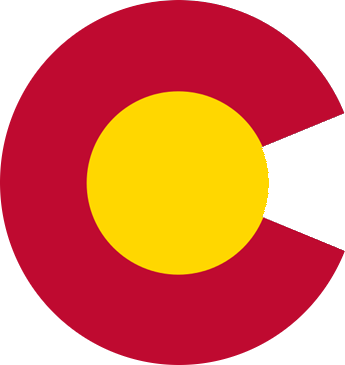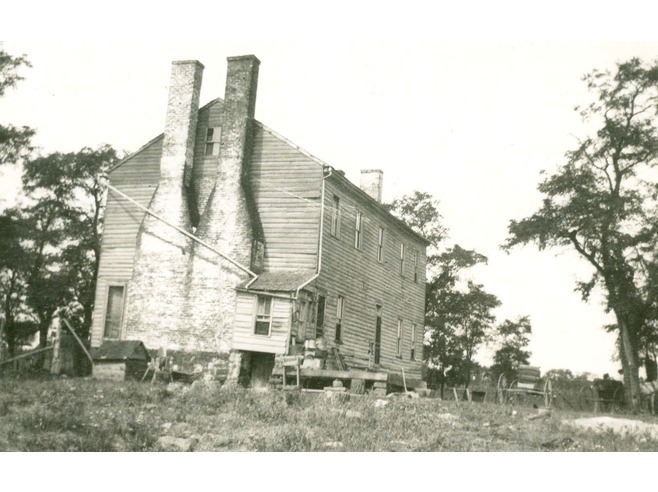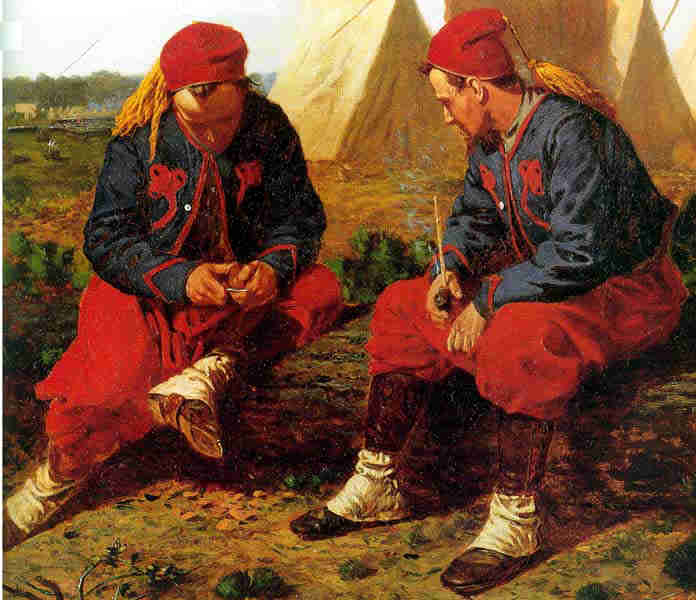The 30th of August dawned and ushered in a glorious day for our young Confederacy, one that will ever be remembered in the annals of history, and one whose fame shall never pass into oblivion. As the day dawned, cannon after cannon boomed forth their iron hail, and the increased firing showed plainly the fierceness of the battle. Regiment after regiment advanced to the contest. We lay for over half a day listening and watching the contest, and still nor orders for us to advance. But a length the order came. General Evans ordered us to advance and the whole brigade started forward in as pretty a line as they had ever formed on dress parade. We advanced first across the little open space, or small strip of old field, and on entering the woods on the other side the shells came flying over us in close proximity. General Evans ordered us to lie down until the shells passed over us. As I lay down a shell came whizzing over me, about foot over my head and fell right at my heels, but, fortunately it did not explode. We got up then and charged forward in a good line, through the woods, over dead and wounded men, shouting like demons. After passing through the woods we entered on a thicket of cedars and here the enemy sent their great shots in perfect hurricanes, crushing and maiming man after man. On entering a little clump of black jacks, grape, canister and shrapnel fairly rattled amid the trees. Here we lost heavily. The man by my side was killed dead on the spot; our gallant Colonel, Ex-Governor Means, fell pierced with a ball through the breast while gallantly cheering us on. It seemed strange how a man could escape, still we pressed resolutely on, and on clearing the woods at Mrs. Chinn’s house, we came in full sight of the enemy drawn up in good line, and showering their leaden missiles upon us, the red uniforms1 of Colonel Duryée’s2 New York Knave3 shining prominent in ranks, with a shout that sounded loud above the cannons roar, we charged on the run, firing and loading as fast as possible. The Yankees did not wait to lock bayonets with us, but turned and fled precipitantly, still keeping up a desultory fire, while giving our whole attention to the fleeing foe, a regiment of Yankees suddenly drew up in line, in a few yards form us on our left and poured in a destructive fire. And now my turn came, for it was here, while busy loading my rifle, that a ball from the enemy came whizzing through my thigh. My first thought was to look at it, but there was so much blood on my leg that I could not distinguish the wound. The balls continued to fly around me, knocking up the dirt all around me, and I was in eminent danger of getting another one. I got up and found I could walk a little and hobbled about five steps back and lay down (Hors de Combat). The battle continued with fury, grape, shell, shot, and Minié balls4 were plowing the air around me, and at that time I was suffering acute pain from my leg. My leg seemed to be numbed all over, still, with a dull kind of pain thrilling through it. Several other wounded were lying near me. It was while lying here that some one came and lay down beside me saying, “We are friend now if we have been enemies.” I did not understand him, in fact, I did not notice him, but I saw he had on a Yankee uniform, which a great many of our men wore, and I supposed him one of our men. I lay still sometime without speaking to him, examining my leg, but having finished I asked him to what regiment he belonged. He replied, “I belong to the 24th Ohio.” “You are a Yankee then,” says I. “Yes” he replied, “But I am tired of this damned war, and won’t fight anymore.” I told him I would not trust a Yankee no further than I could see, and demanded his gun, which he very complacently delivered, remarking “It is loaded.” I turned him over to our soldiers on their return. I lay here where I was wounded until the battle ended, which was about half hour after I got wounded. The Yankees were thoroughly whipped. It seemed as if the field of Manassas was peculiarly unfortunate for them. As the retreating foe disappeared in the distance I got up on my legs again and commenced to hobble along. I found myself very weak and stiff, just able to limp along, but I assure you it afforded me infinite satisfaction as I knew when I could walk that my leg was not broken. I hobbled up to Mrs. Chinn’s house about one hundred yards form where I was wounded and there I fortunately met one from our company, William Clark, who kindly assisted me, bound up my leg and gave his blanket and oil cloth to me. I will never forget this kindness. He evinced a warm heart an showed a brotherly feeling as soldiers should, for his comrade-in-arms. Poor fellow, he afterwards received his death wound on the field of Sharpsburg5. I went into the cellar of the house and lay down for the night, perfectly weary and contented. I felt really happy on my own account, but exceedingly anxious on theirs. I got a soldier to fill my canteen with water and I used that simple, but most healing restorative on my wound just pouring it on the spot to keep the fever out of it. I finally got a young Virginia doctor to bind up my leg and I felt very comfortable the rest of the night. Captain Avery, my uncle, who was looking on the battlefield for me, found me about twelve o’clock that night in good spirits, and left me, promising to have me carried off in the morning, which he did. I considered myself truly fortunate in getting into the cellar, for it not only rained, but a night amid the dead and dying is not pleasant. I was partially shielded from the discordant sounds of the wounded and dying, but I heard sufficient to appall the ear of the most hard hearted stoic. Discordant sounds rent the air, yells, sheiks, piteous groans and cries of suffering reached the ear on every side. It is truly horrible to witness the mangled bodies of the unfortunate combatants, limbs off, bodies half shot away, features awfully disfigured, etc. all wrapped up in the robe of death. The features were variously marked, some wore the stern aspect of battle, even in death, some presented pictures of despair, some of reckless determination, some of fright, and still some of calmness and self-satisfaction, truly sublime. Some were smiling in death, seeming to realize that old and patriotic, but romantic maxim “’Tis sweet to die for one’s country.” Peace be to their ashes, a soldier’s fate. How wonderfully sudden, how apparently awful. I spent the night very comfortable, in fact, I slept, though you may think it strange, but I did. Morn at last appeared, damp, hazy, chilly, the smoke of battle yet hovered in Manassas, on the battlefield, and the bodies of ten thousand dead bespotted the face of nature. The Sun of Austerity never shown on a more desolate scene. About 11 o’clock my uncle came after me and I was carried out on a litter, placed in a wagon with three others of my regiment, and we were hauled off the battlefield to the camp hospital. I would not go in the hospital but with Lieutenants Logan and Moore, and my cousin W. Dunovant, all wounded, we put up a shanty and stayed in the woods. We had a couple of servants, Noah for one, and did very well. We lay here three or four days, when we were carried to Warrenton, and here we hired a little private house and put up for good. I cannon pay too great a tribute to the ladies of Warrenton, Virginia. We were treated with every kindness by these noble hearted women. We were supplied with everything which comfort could demand, and our comforts extended even to luxuries, and their continued solicitude and watchful presence, threw a halo of joy over our suffering. The aged, but kind hearted old ladies, as well as the beautiful and accomplished young damsels, united in their mutual efforts to our comfort. God bless and forever protect them. Let no man ever speak in disparaging terms of the ladies of Warrenton, for they are models as patriots and as ladies. I will ever uphold them.
We remained in Warrenton about ten days when we hired a man for 40 dollars to take us to Rapidan Station in an old rough wagon without springs. This was our only plan to get home. We were two days in getting to Rapidan Station, but finally reached the desired spot. Here we mounted in an old horse cart and went to Gordonsville, Virginia. Here, to my inexpressible joy, I met my father on his way after me. I found but little difficulty in getting passports for home, and in a week from that day I was safely lodged at home, and in six or eight weeks recovered form my wound entirely. The next year I got a discharge and went to the State Military Institution at Columbia, but I am now on the qui vie again, having left school.
1 Zouave - https://en.wikipedia.org/wiki/Zouave
2 Abram Duryée - https://en.wikipedia.org/wiki/Abram_Dury%C3%A9e
3 5th New York Volunteer Infantry - https://en.wikipedia.org/wiki/5th_New_York_Volunteer_Infantry
4 Minié ball - https://en.wikipedia.org/wiki/Mini%C3%A9_ball
5 Battle of Antietam - https://en.wikipedia.org/wiki/Battle_of_Antietam


